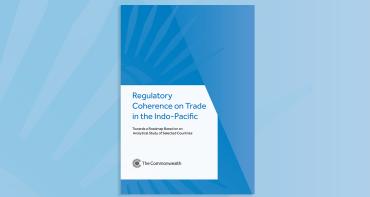South Africa conference looks at the economic potential of natural fibres
Experts and delegates from 19 African countries will gather in Port Elizabeth, South Africa, from 3 to 10 March 2012 to discuss ways of boosting natural fibre production in a bid to tackle rural poverty.
The Commonwealth Secretariat in partnership with the Council for Scientific and Industrial Research (CSIR) and South African natural fibre stakeholders have organised the first ever Global Natural Fibre Forum (GNFF) symposium. It will include technical discussions, country presentations on current natural fibres programmes and a products exhibition.
The production, processing and export of fibres from animals and plants are critical to the economy of many countries, with the livelihoods of millions of small producers and low wage workers depending on the sector.
|
Natural fibres include bamboo, banana, cashmere, coconut, cotton, flax, grasses, hemp, jute, kenaf, maize, mohair, pineapple, rice, sisal, soya, sunflower, wild silk, wood and wool. For thousands of years people all over the world have used fibres from plants and animals to make cloth, string, paper, and to strengthen building materials. Poverty in Africa is predominantly rural. More than 70 per cent of the continent’s poor people live in rural areas and depend on agriculture for food and livelihood, according to the World Bank. |
The GNFF is a worldwide network that collects and distributes information around the use and economic value of natural fibres and how these can be used as a critical source for small and medium sized enterprises (SMEs), farmers and poor rural communities to uplift their livelihoods.
Live demonstrations at the symposium will include fibre extraction, fibre conversion and its application to different industries including packaging, biofuels, bio composites, construction, handicraft, foods, cosmetics, health and textiles industries.
It is open to research institutions, trainers, SMEs, farmers and other professionals in the natural fibres industry.
South Africa’s Minister of Economic Development Ebrahim Patel, Commonwealth Deputy Secretary-General Ransford Smith, Chairperson of HouseofHemp Dr Mamphela Ramphele and Dr Thulane Dlamini from the CSIR will address delegates.
The African chapter of the GNFF will also be launched at the symposium.
Its goal will be to review and profile natural fibres found on the African continent in a bid to raise awareness about their economic benefits. The organisation will also seek to provide support for existing natural fibre producers and promote inter-country collaboration and research.
Dr Thandeka R Kunene, CEO of House of Hemp and Commonwealth Secretariat Regional Expert Consultant, said: “Once we have launched the GNFF Africa in March 2012, we can explore ways of ensuring that farmers and SMEs, especially in the handicraft and textiles industries, can benefit and use the GNFF Africa market and training opportunities to enhance the product range to include lifestyle applications. This will increase job opportunities and income, especially in the rural areas.”
GNFF (Pacific) was launched in January 2012 and similar chapters will be set up in Asia and the Caribbean.
Commonwealth African countries attending the symposium include Botswana, Cameroon, The Gambia, Ghana, Kenya, Lesotho, Malawi, Mauritius, Mozambique, Namibia, Nigeria, Rwanda, Seychelles, Sierra Leone, South Africa, Swaziland, Tanzania, Uganda and Zambia.
For any enquiries please contact: Watipaso Mkandawire, Acting Head and Adviser (Enterprise and Agriculture Section) [email protected] or Aaban Butt (Enterprise and Agriculture Section) amailto:[email protected].



